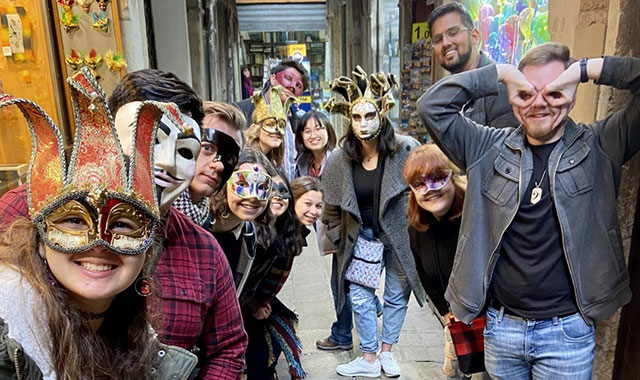Medical Humanities and Understanding Health
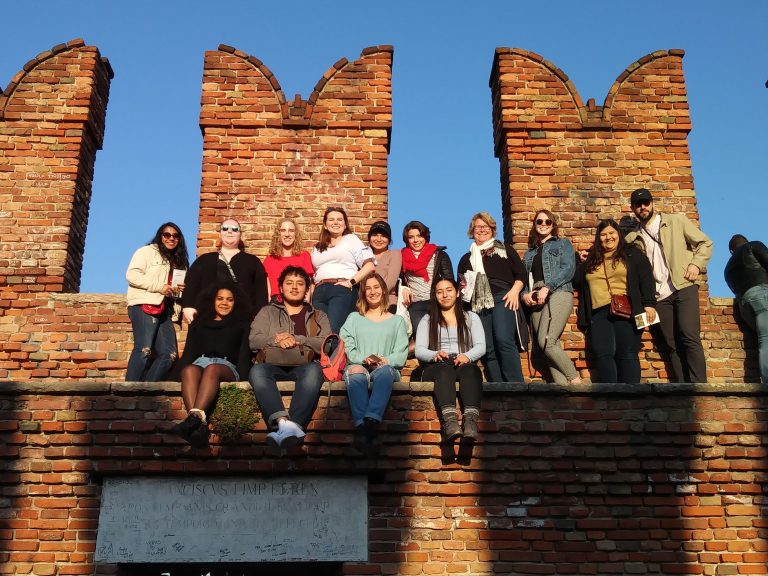 Unlike many study abroad programs, which involve registrations at foreign institutions and administrative hurdles to transfer courses, the COLFA Semester in Urbino offers UTSA courses taught by UTSA faculty or by University of Urbino faculty who have been vetted and approved by UTSA. The courses have been carefully selected to fit into UTSA degree plans and will appear seamlessly in ASAP. Moreover, since you will remain a full-time UTSA student during your semester abroad you will have access to UTSA services such as financial aid and library resources and will not encounter difficulties with minimum credit-hour requirements for financial aid or scholarships.
Unlike many study abroad programs, which involve registrations at foreign institutions and administrative hurdles to transfer courses, the COLFA Semester in Urbino offers UTSA courses taught by UTSA faculty or by University of Urbino faculty who have been vetted and approved by UTSA. The courses have been carefully selected to fit into UTSA degree plans and will appear seamlessly in ASAP. Moreover, since you will remain a full-time UTSA student during your semester abroad you will have access to UTSA services such as financial aid and library resources and will not encounter difficulties with minimum credit-hour requirements for financial aid or scholarships.
Supplemental art and cooking classes are also available during the semester.
Important Dates for Fall 2023
See some of the important events and trips scheduled for the semester. Many of the details are still being finalized, so some dates and trip destinations may vary. A printable schedule of class meeting times and excursion dates is also available.
| February 28 | Commitment fee of $1000 due by 4:00 pm (see the Fall 2023 BB Organization for payment instructions) |
|---|---|
| March 30 | Balance of first payment of $1750 due by 4:00 pm |
| September 1 | Arrival in Rome at Leonardo da Vinci International Airport (FCO) no later than 1:00 pm; charter bus to Urbino departs promptly from the airport at 2:00. Anticipated arrival in Urbino at 6:30 pm. |
| September 2 | 9:00: GEV orientation. GEV will collect a deposit (€100 or $100) that will be returned at the end of the program if there are no damages to the classrooms or dorms. 13:00: welcome lunch 14:00 tour of Urbino with Roberta |
| September 4 | classes begin |
| September 7 | 9:00: Organic Farm Tour 13:00: Welcome Lunch |
| September 8 | 9:00 Departure by public bus for guided tour of Pesaro |
| September 9 | 9:00 Historical Tour of Urbino 11:00 Palazzo Ducale Tour |
| September 14 | 8:00 Departure for day trip to Bologna |
| September 21-24 | Extended excursion: Rome |
| September 28 | 7:30 Departure for day trip to Ravenna |
| October 5-8 | Extended excursion: Verona and Venice |
| October 9-15 | Fall break |
| October 19 | 8:00 Departure for day trip to Rimini |
| October 26 | 8:00 Departure for day trip Assisi/Perugia (the UTSA group will be split with one group going to Perugia and another group going to Assisi. The groups will visit the alternate cities on November 9) |
| November 2-5 | 8:00 Departure for Siena and Florence |
| November 9 | 8:00 Departure for day trip to Perugia/Assisi |
| November 16-18 | Optional Mini-Excursion to Matera |
| November 24 | Farewell Dinner |
| November 27 | Final exams and presentations |
| November 28 | Studio Check-Out Dorm Check-Out |
| November 29 | 5:00 Bus to Rome Airport for return to US. All students must fly home on this day |
Course Information
The following 16 credit hours of courses are offered during the Fall 2022 semester.
The focus on Medical Humanities will be especially relevant to students in the Anthropology, History, Medical Humanities, Museum Studies, and Psychology programs. Graduate versions of these courses are also available. If you are a graduate student interested in the COLFA Semester in Urbino, please contact us for more information.
| HIS 3453.1 | History of Medicine (approved for MHU elective) |
|---|---|
| ANT 4953.2 | Special Studies: Myths of Human Nature |
| PSY 4953.4 | Psychology of Health |
| HIS 4953.3 | Special Studies in History |
| FL 1034 | Elementary Italian |
Course Descriptions
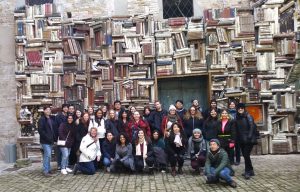 HIS 3453.1 CRN 19811 History of Medicine will offer students an overview of key themes, methods, and scholarship in the history of medicine. Topics may include the history of specific disease, epidemics, and plagues. Course will also explore the history of therapeutic innovations, patient experiences, and the role of medical spaces ranging from hospitals to pharmacies. Students will read and analyze primary and secondary sources on the topic, and focus on intersections of historical context and ideas of health, healing, and wellness.
HIS 3453.1 CRN 19811 History of Medicine will offer students an overview of key themes, methods, and scholarship in the history of medicine. Topics may include the history of specific disease, epidemics, and plagues. Course will also explore the history of therapeutic innovations, patient experiences, and the role of medical spaces ranging from hospitals to pharmacies. Students will read and analyze primary and secondary sources on the topic, and focus on intersections of historical context and ideas of health, healing, and wellness.
ANT 4953.2 CRN 24336 Special Studies in Anthropology: Myths of Human Nature. Why do we behave the way we do? To what extent is our behavior explained by our biological heritage? What makes humans different from other animals? A central concept in the evolution of human behavior is the idea that our brains, like our bodies, have been shaped by natural selection. The extent to which this factor influences the diverse behavior of modern humans is a topic of considerable debate. This course takes a critical look at key misconceptions about human evolution, including evolution as a march of progress, the paleolithic diet, innate criminality (e.g., Lombroso’s criminal atavism), and racialized medicine, among others.
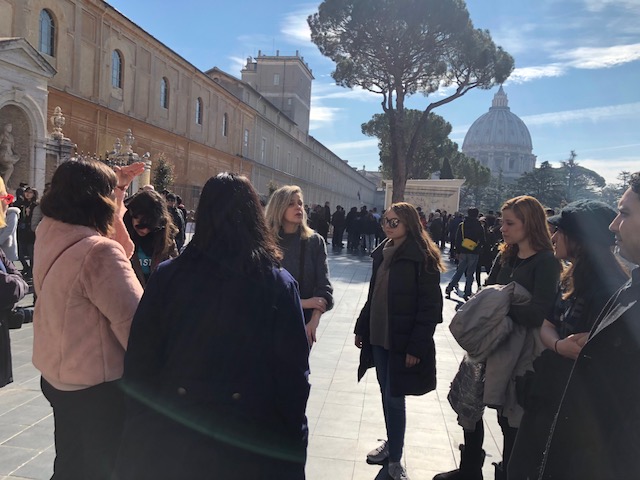 PSY 4953.4 CRN 23837 Cross-Cultural Psychology & Health. Mahatma Gandhi once said that “It is health that is real wealth, not pieces of gold and silver.” This course will explore the topic of health from biological, social, and psychological angles. We will explore what it means to be healthy and how conditions including cardiovascular disease, cancer, diabetes, the common cold and Alzheimer’s Disease affect us physically and mentally. Emphasis will be placed on the social, cultural, and environmental factors that influence health and illness, mind body links, and what we can do to promote good health in ourselves and others. Students will have the opportunity to research and write a paper exploring a health related issue from both an American and Italian perspective.
PSY 4953.4 CRN 23837 Cross-Cultural Psychology & Health. Mahatma Gandhi once said that “It is health that is real wealth, not pieces of gold and silver.” This course will explore the topic of health from biological, social, and psychological angles. We will explore what it means to be healthy and how conditions including cardiovascular disease, cancer, diabetes, the common cold and Alzheimer’s Disease affect us physically and mentally. Emphasis will be placed on the social, cultural, and environmental factors that influence health and illness, mind body links, and what we can do to promote good health in ourselves and others. Students will have the opportunity to research and write a paper exploring a health related issue from both an American and Italian perspective.
HIS 4953.2 CRN 24326 Special Studies in History: History and Culture of Italy. This course provides students with the opportunity to acquire knowledge and understanding of Italy and the richness and diversity of its culture. The course will consist of lectures and discussions covering the following topics: Geography and geology; Italian history and its political structure; art, architecture, and design; language and literature; music and theatre; fashion design and cinema; culinary traditions and trends; popular traditions including sports, daily life and social customs.
FL 1034 Beginning Language Study Abroad. Opportunity to begin developing oral and written communication skills in the target language, along with enhanced comprehension skills in listening and reading. Linguistic and cultural immersion. May be repeated up to 8 semester credit hours in each language.
Fall 2023 Faculty
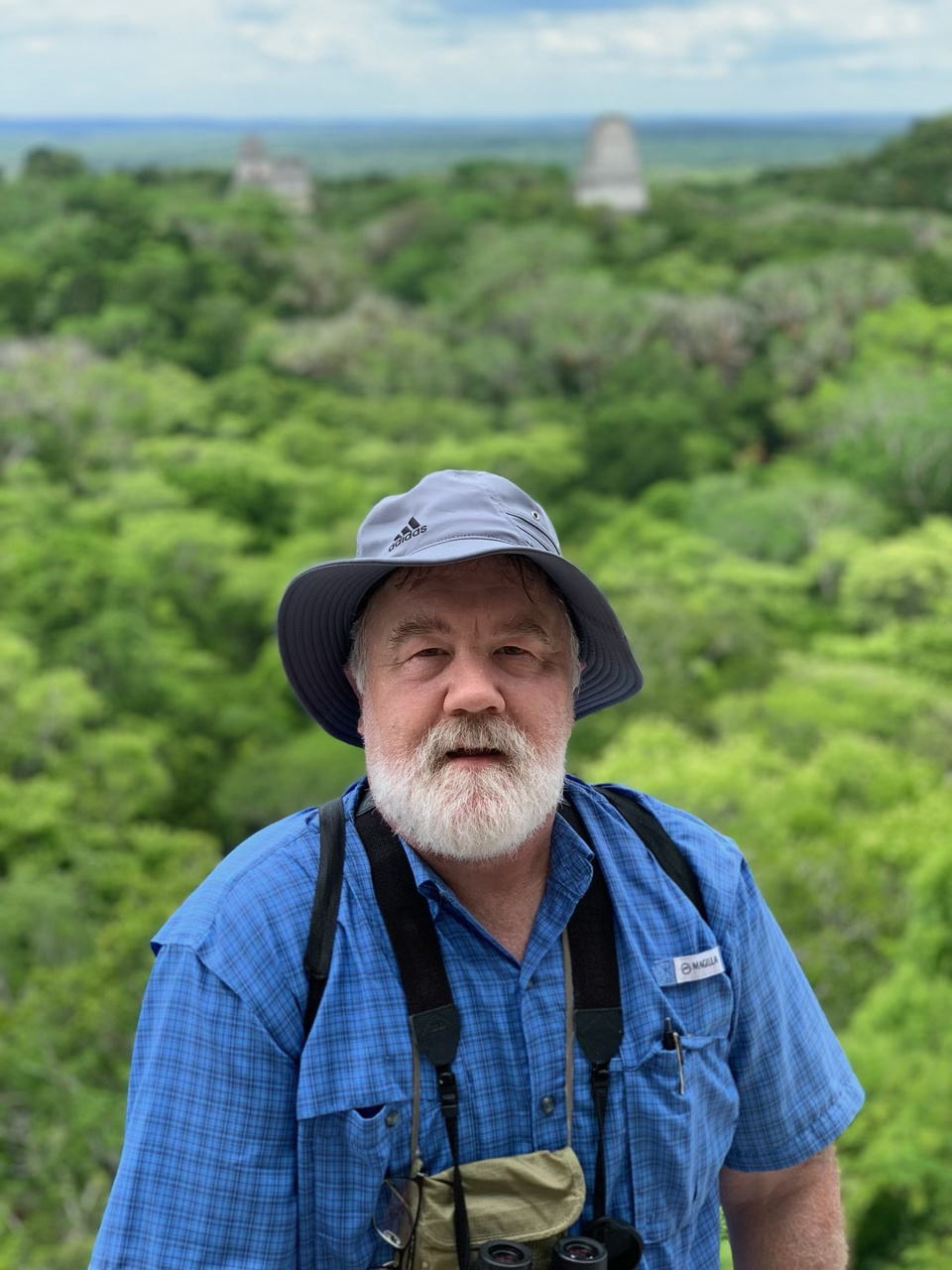 Dr. Thad Bartlett is Professor and Chair of the Department of Anthropology. He received his BA from Grinnell College and his MA and PhD degrees from Washington University. His primary research emphasis is in the area of primate socioecology, which seeks to understand the evolutionary relationship between a species’ ecology and its social structure, but his broader interest is in Darwinian evolution as it relates to social behavior in humans, an area of study that is fraught with ambiguity and misapprehension. Accordingly, a key goal of his teaching is to rectify common misconceptions about evolution, about Charles Darwin’s work, and about race as a biological category. Over the last 20 years Dr. Bartlett’s research has taken him to Thailand, Cambodia, China, Malaysia, and most recently, Belize. He previously directed an anthropological field school in Cameroon, West Africa, and is the recipient of the UTSA Distinguished Achievement Award for Teaching Excellence, the President’s Distinguished Achievement Award for Core Curriculum Teaching, and the Graduate School Excellence in Graduate Advising Award.
Dr. Thad Bartlett is Professor and Chair of the Department of Anthropology. He received his BA from Grinnell College and his MA and PhD degrees from Washington University. His primary research emphasis is in the area of primate socioecology, which seeks to understand the evolutionary relationship between a species’ ecology and its social structure, but his broader interest is in Darwinian evolution as it relates to social behavior in humans, an area of study that is fraught with ambiguity and misapprehension. Accordingly, a key goal of his teaching is to rectify common misconceptions about evolution, about Charles Darwin’s work, and about race as a biological category. Over the last 20 years Dr. Bartlett’s research has taken him to Thailand, Cambodia, China, Malaysia, and most recently, Belize. He previously directed an anthropological field school in Cameroon, West Africa, and is the recipient of the UTSA Distinguished Achievement Award for Teaching Excellence, the President’s Distinguished Achievement Award for Core Curriculum Teaching, and the Graduate School Excellence in Graduate Advising Award.
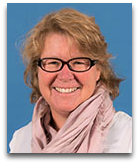 Dr. Kirsten E. Gardner, Associate Professor of History, teaches in the Department of History, Program of Women’s Studies, and American Studies Program. In 2015, she was honored with the UT System Regents’ Outstanding Teaching Award. She is also a member of the UTSA Academy of Distinguished Teaching Scholars and a winner of the President’s Distinguished Teaching Award for Core Curriculum. Dr. Gardner has taught undergraduate and graduate courses in U.S. History, Women and Gender Studies, History of Medicine, Modern U.S. history, Gender and Technology, Research and Writing Practices, and Pedagogy for Historical Thinking.
Dr. Kirsten E. Gardner, Associate Professor of History, teaches in the Department of History, Program of Women’s Studies, and American Studies Program. In 2015, she was honored with the UT System Regents’ Outstanding Teaching Award. She is also a member of the UTSA Academy of Distinguished Teaching Scholars and a winner of the President’s Distinguished Teaching Award for Core Curriculum. Dr. Gardner has taught undergraduate and graduate courses in U.S. History, Women and Gender Studies, History of Medicine, Modern U.S. history, Gender and Technology, Research and Writing Practices, and Pedagogy for Historical Thinking.
Dr. Gardner earned a B.A. from Georgetown University; M.A. and Ph.D. from the University of Cincinnati; and a graduate certificate in Women’s Studies from University of Cincinnati. Her research focuses on issues of women’s health, technology and healthcare, and women and the military. Early Detection Women, Cancer, and Awareness Campaigns in the Twentieth-Century United States (UNC, 2006) traced women’ s activism and cancer early detections campaigns for nearly a century. More recently, her work on the history of diabetes since insulin explores how medical technologies and patient experience have intersected in the past century. Gardner has published her research and reviews in several book chapters and many academic journals including The Journal of Women’s History; Enterprise and Society; Literature and Medicine; Gender, Health and Popular Culture: Historical Perspectives; Beauty and Business: Commerce, Gender, and Culture in Modern America; and Artificial Parts and Practical Lives: Modern History of Prosthetics.
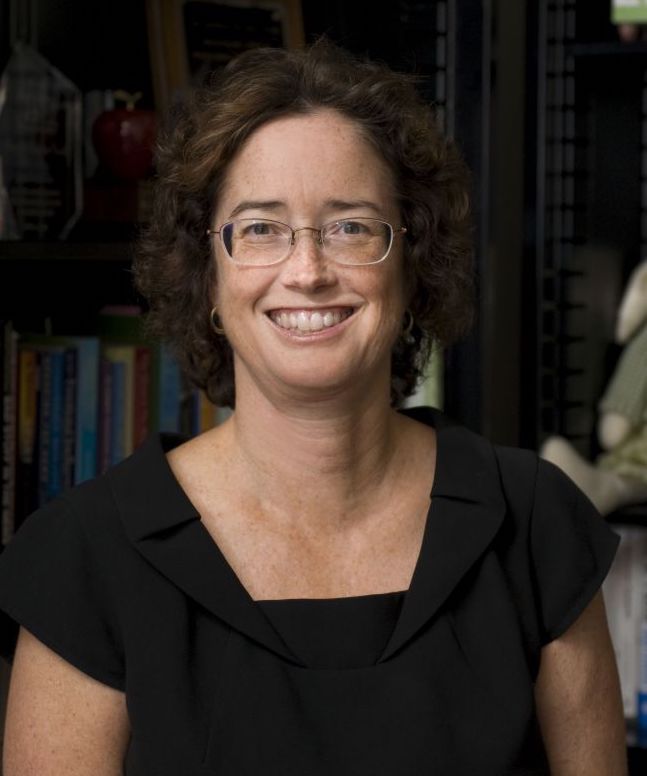 Dr. Mary McNaughton-Cassill received her Ph.D. in Clinical Psychology from the UCSD/SDSU Joint Clinical Doctoral program in San Diego. She is currently a professor of Psychology at the University of Texas at San Antonio. The courses she teaches include Abnormal Psychology, Psychology and Health, Physiological Psychology and Stress Management. In her 20+ years at UTSA, she has also served as the Associate Dean of Undergraduate Affairs, and the Interim Director of the Teaching and Learning Center and the Co-Chair of the UTSA Distinguished Teaching Academy. Awards she has won include the Chancellor’s Council Teaching Award, the UTSA Student Government Distinguished Faculty Award, the Honor’s College Outstanding Mentorship Award, the Howe Service to Students Award and the UT Regents’ Outstanding Teaching Award and the Piper Outstanding Teaching Award. She is also a Fellow of the UT Austin System Academy of Distinguished Teachers. Her research has focused on stress and coping in modern life, with particular emphasis on the impact of the media on well being, and factors that influence student academic success. She has written a book about coping with stress in the modern world entitled “Mind The Gap” and was the editor of “Adapt and Overcome: Essays on the Student Veteran Experience” which focuses on the experiences of military veterans at UTSA. She also has a small private practice, and is a Disaster Mental Health Responder with the Green Cross Academy of Traumatology (Greencross.org). Her husband, Dr. Aaron Cassill is a Biology professor at UTSA; they have 26-year-old twin daughters, and live with a number of cats.
Dr. Mary McNaughton-Cassill received her Ph.D. in Clinical Psychology from the UCSD/SDSU Joint Clinical Doctoral program in San Diego. She is currently a professor of Psychology at the University of Texas at San Antonio. The courses she teaches include Abnormal Psychology, Psychology and Health, Physiological Psychology and Stress Management. In her 20+ years at UTSA, she has also served as the Associate Dean of Undergraduate Affairs, and the Interim Director of the Teaching and Learning Center and the Co-Chair of the UTSA Distinguished Teaching Academy. Awards she has won include the Chancellor’s Council Teaching Award, the UTSA Student Government Distinguished Faculty Award, the Honor’s College Outstanding Mentorship Award, the Howe Service to Students Award and the UT Regents’ Outstanding Teaching Award and the Piper Outstanding Teaching Award. She is also a Fellow of the UT Austin System Academy of Distinguished Teachers. Her research has focused on stress and coping in modern life, with particular emphasis on the impact of the media on well being, and factors that influence student academic success. She has written a book about coping with stress in the modern world entitled “Mind The Gap” and was the editor of “Adapt and Overcome: Essays on the Student Veteran Experience” which focuses on the experiences of military veterans at UTSA. She also has a small private practice, and is a Disaster Mental Health Responder with the Green Cross Academy of Traumatology (Greencross.org). Her husband, Dr. Aaron Cassill is a Biology professor at UTSA; they have 26-year-old twin daughters, and live with a number of cats.
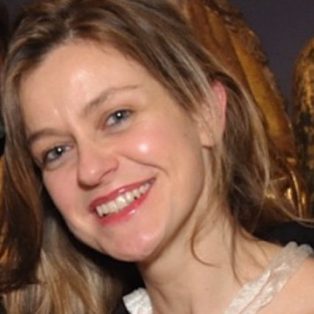 Dr. Grazia Fachechi is an Assistant Professor of Art History at the University of Urbino, Department of Humanities, where she has taught undergraduate and graduate students for more than twenty years. She received her Bachelor and Master degrees in Urbino and did post-graduate work in other cities: Florence (certificate in Museology and Art Criticism at the International University of Art – UIA), Perugia (PhD in Art History at the University of Perugia) and Rome (Diploma of Specialization in Medieval and Modern Art History at Sapienza University). She currently lives in Rome.
Dr. Grazia Fachechi is an Assistant Professor of Art History at the University of Urbino, Department of Humanities, where she has taught undergraduate and graduate students for more than twenty years. She received her Bachelor and Master degrees in Urbino and did post-graduate work in other cities: Florence (certificate in Museology and Art Criticism at the International University of Art – UIA), Perugia (PhD in Art History at the University of Perugia) and Rome (Diploma of Specialization in Medieval and Modern Art History at Sapienza University). She currently lives in Rome.
Dr. Fachechi’s principal fields of expertise are illuminated manuscripts (specifically works preserved in the Vatican Library) and wooden sculptures. She is the author of a book on Jacopo da Fabriano who was one of the favorite miniaturists of the Renaissance Pope Pius II and two books on wooden sculptures. The most recent is a catalogue of the most important wooden sculpture collection in Italy (housed in the National Museum of Palazzo Venezia in Rome) and was funded by the Getty Foundation of Los Angeles.
She has also published research on paintings, both from the Medieval and Renaissance ages. She is very interested in the text-image relationship, both in the religious context, with special regard to the iconography of the Passion of Christ, and in the lay context, with particular interest in iconographical themes of Classical Antiquity and the visual illustration of ancient literary works (especially those by the Latin writers Plauto and Seneca) in the Medieval and Renaissance eras.
 The Italian language courses are taught by certified instructors at Lingua Ideale Urbino working under the auspices of the University of Urbino “Carlo Bo”. Lingua Ideale is a professional language school offering courses of Italian language and culture to foreigners. The curriculum for the COLFA Semester in Urbino has been designed to meet the requirements of the foreign language courses at UTSA while also incorporating local aspects of Italian culture.
The Italian language courses are taught by certified instructors at Lingua Ideale Urbino working under the auspices of the University of Urbino “Carlo Bo”. Lingua Ideale is a professional language school offering courses of Italian language and culture to foreigners. The curriculum for the COLFA Semester in Urbino has been designed to meet the requirements of the foreign language courses at UTSA while also incorporating local aspects of Italian culture.

